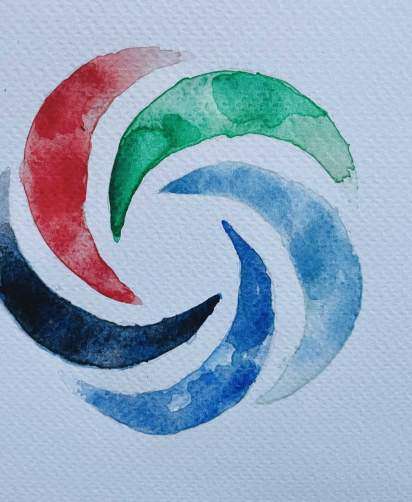

01/ Strategy
Our mission
The mission of Euskampus Fundazioa is to embark on, catalyse and lead connection and co-creation processes...
... that generate innovative cooperation dynamics and programmes...
...for higher education, research and knowledge transfer...
... in order to come up with and foster joint responses to scientific, technological and cultural challenges with a high social impact...
... working with groups from the University of the Basque Country, the University of Bordeaux, Tecnalia and the DIPC, from other Higher Education, Science, Technology and Innovation institutions from the Basque Country, New Aquitaine and Europe, and which are open to the inclusion of other stakeholders.
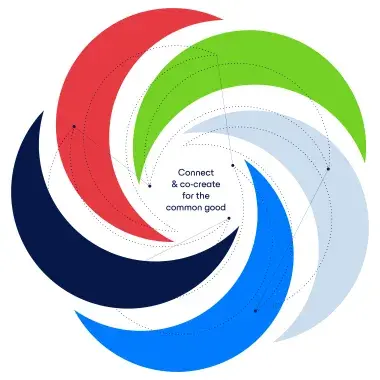
Vision
By 2030, Euskampus Fundazioa aspires to be a reference of inclusive co-leadership and interdisciplinary cooperation in Higher Education, Research and Innovation, as evolution levers towards a more prosperous, sustainable and equitable society.
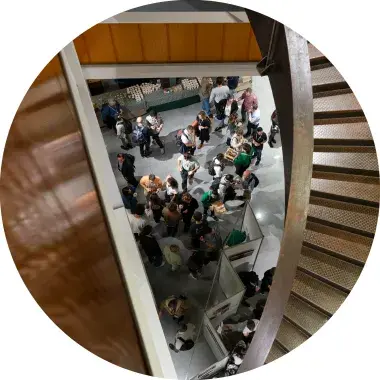
Strategic pillars
The mission and vision are supported by 5 strategic pillars and a common core for them all.
BASE: The UPV/EHU, Université de Bordeaux, Tecnalia and DIPC Strategic Alliance
1. Higher education, science, technology and culture as essential conditions
2. Collaboration and sense of initiative
3. Diversity from a systemic and inclusive perspective
4. Participative culture through co-creation
5. Responsible innovation and impact
Values
Euskampus Fundazioa is inspired and guided by a set of values:
Commitment and Loyalty
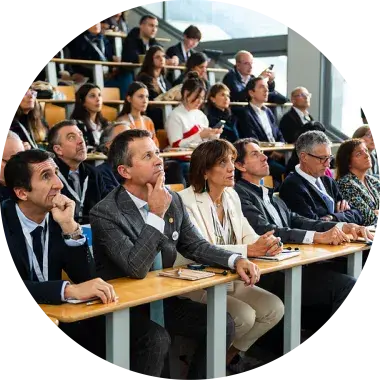
Euskampus is the fruit of the shared vision of its founding trustees. Over the years, it has diversified its field of action thanks to the trust of other institutions. They all inspire and sustain our work and, in exchange, we help them in the development of their missions, recognising and making visible the results of their efforts.
Synchronicity and Transcendence
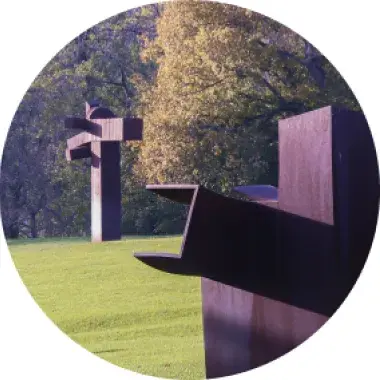
Euskampus is fully aware that it forms part of a whole that goes beyond the limits of its own organisation, those of its trustees and the institutions with which it works. It is therefore constantly listening actively and showing empathy in order to flow along with the system that it forms part of, hence generating an abundance that comes from putting the common good ahead of the individual interests of each institution.
Creativity and Excellence

Euskampus generates a climate of enthusiasm that spawns new ideas, breaks the mould and takes institutions and groups out of their comfort zones. It fosters rigour and results-orientation, as well as maximum performance in the design and development of innovative cooperative programmes and projects.
Agility and Pragmatism
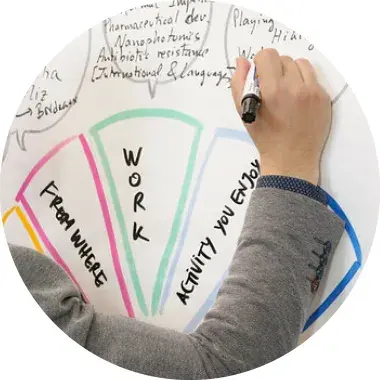
In a complex and changing reality, the perfect response to each challenge cannot be provided immediately. For this reason, Euskampus opts for rapid prototyping, enabling the feasibility and impact of each process and programme to be assessed. Once its suitability has been confirmed, successive versions are deployed, working with the different stakeholders to improve and gradually solidify its implementation.
Flexibility and Discretion
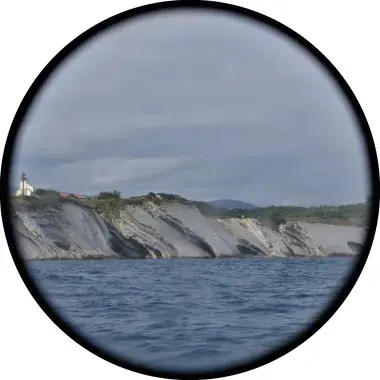
Euskampus is a dynamic space that is constantly evolving and adapting to the needs of its environment and stakeholders. It shuns rigid formulas and approaches, concentrating on the uniqueness of demands, offering innovative, bespoke solutions, ensuring end-to-end transparency in its procedures and interventions.
Inclusiveness and Integration

Although a small organisation, Euskampus works with an extensive social network and communities that are tremendously diverse in terms of knowledge, cultures, languages and traditions, strategic aspirations and operating environments. In all of its programmes and projects, or in those in which it participates, it fosters the balanced integration of this diversity, mutual trust and generosity, along with multiculturalism and multilingualism.
Growth and Empowerment
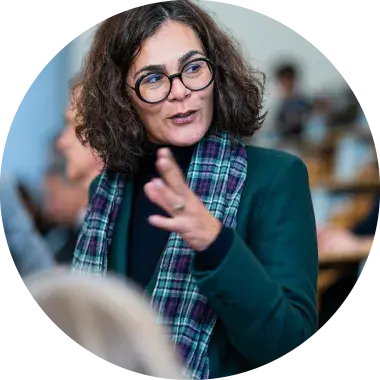
Euskampus is a space for personal and professional development, based on trust, responsibility and mutual respect for those who form part of the organisation. It constitutes a flexible and tolerant space for ideas and personal performance paces, enabling individual talent and teamwork to thrive. Each individual counts and teamwork enhances progress and personal growth.

02/ In figures
Euskampus Fundazioa,
since 2012

03/ Board of Trustees
Euskampus
Board of Trustees
The Board of Trustees is the Foundation's most senior decision-making body.
The Members of the Board of Trustees
are as follows:
The entities listed above have the following representatives on the Board of Trustees:

Joxerramon Bengoetxea Caballero
Rector of the UPV/EHU, Chairperson of Euskampus Fundazioa Board of Trustees
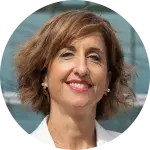
Leire Garmendia Arrieta
General Secretary of the UPV/EHU

Jon Umerez Urrezola
Vice-Rector for Research at UPV/EHU

Gotzone Barandika Argoitia
Vice-Rector for Transfer and Internationalization at UPV/EHU

Javier Aizpurua
Research Professor for the Spanish National Research Council (CSIC) at CFM
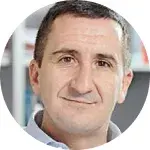
Ricardo Díez
CEO of the DIPC, Vice-chairperson of Euskampus Fundazioa Board of Trustees
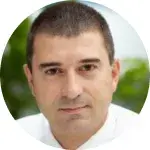
Jesús Valero
CEO of Tecnalia

Elena Schaeidt
Director of Corporate and International Development at Tecnalia
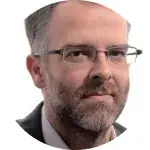
Olivier Pujolar
Vice-President for Partnerships at the University of Bordeaux

Javier Ormazabal
President of Ormazabal Corporate Technology A.I.E.

Fernando Cossío
Scientific Director of Ikerbasque
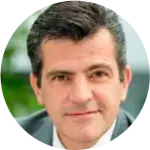
Iñaki San Sebastián
CEO of CAF, Construcciones y Auxiliar de Ferrocarriles

Manuel Tuñón de Lara
Ex-president of the University of Bordeaux
Honorary trustee

04/ History
Euskampus Fundazioa was created on July 19, 2011
Euskampus Fundazioa has undergone two stages since its creation.
The first, in which it was created, is linked to the UPV/EHU's Conversion Project to a Campus of International Excellence, together with DIPC and TECNALIA. We could call this Euskampus 1.0. The second began once the Campus of International Excellence of the UPV/EHU had been recognised and confirmed. We could call this Euskampus 2.0, or the post-CEI stage, characterised by the consolidation of the cooperation activity promoted in the first stage, basically the Knowledge Hubs and the Cross-border Campus with Bordeaux, and diversification towards new programmes with various players in the Basque Country.
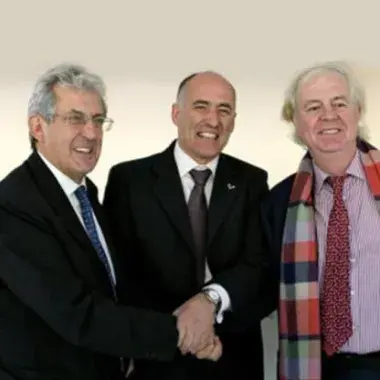
Euskampus 1.0
Euskampus Fundazioa was set up in the context of the Euskampus CEI project, which saw Euskampus contend for the Campus of International Excellence label. With this mission, the University of the Basque Country (UPV/EHU), TECNALIA Technology Research Centre and Donostia International Physics Center (DIPC) joined forces to consolidate an international excellence project, under the motto “One University, one Country, one Campus”. This was a highly complex strategic project, aimed at achieving international leadership in education and knowledge generation and transfer in three specialist areas (sustainable ecosystems and environmental technologies, innovative processes and new materials, healthy ageing and quality of life) and responding to the needs of society and creating wealth in the Basque Country, using an integrated, social and financially-sustainable model.
Euskampus Fundazioa was set up to address a series of interrelated issues:
- The governance of an inter-institutional consortium of organisations of varying sizes, character, mission and organisational culture, joined by leading stakeholders from the Basque Science, Technology and Innovation Network (RVCTI);;
- The complexity of the initiatives put forward by the Euskampus CEI Project, as regards to both the amount (more than 100) and range of issues covered, encompassing all three of the university’s missions;
- The management of shared resources, and outreach to ensure the CEI Project reaches and extensive community of researchers;
- Long term management to secure long-term stakeholder commitment to the Campus of International Excellence, with the aim of extending it beyond its initial five-year span (2010-2015)
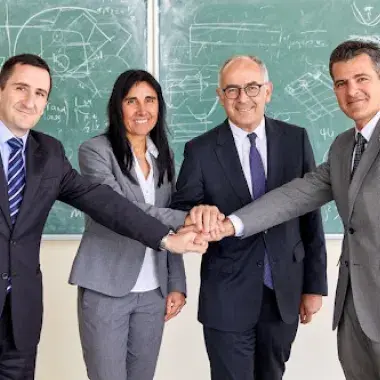
Euskampus 2.0
After completing the CEI project in 2016, a new Euskampus Strategic Plan 2016-2020) was proposed, providing continuity to the core cooperative actions developed between the founding trustees of Euskampus, and between them and the University of Bordeaux during the CEI Project, namely the of Knowledge Hub Community and the Euskampus-Bordeaux Cross-Border Campus. Both cooperative action frameworks were redesigned to align them with the priorities and opportunity niches of RIS3 Euskadi and to contribute towards their deployment within the framework of the Basque Government’s Science, Technology and Innovation Plan (PCTI 2020) and the Strategic Plan 2014-2020 of what was initially the Aquitaine-Basque Country Euroregion, which was later updated to the New Aquitaine-Basque Country-Navarre Euroregion.
Over the ten-year period, around 20% of the UPV/EHU research groups from a range of disciplines and more than 20 local and international institutions, other than UPV/EHU, Tecnalia and DIPC, have taken part in the cooperative dynamics of the Knowledge Hubs. Since 2012, Euskampus Fundazioa has invested around €4 million to foster more than 100 cooperative actions (local and international research projects, new postgraduate training programme, knowledge transfer and dissemination), 4 summer schools, and the launch of 5 joint research laboratories (JRLs) in fields such as artificial intelligence, renewable marine energy, antibiotic resistance, sustainable concrete and advanced pharmaceutical developments.
Similarly, experimentation began in 2020 on a new challenge-oriented cooperation formula, the Euskampus Missions. The Euskampus COVID-19 Resilience Project was launched, addressing 4 challenges, mobilising 9 interdisciplinary cooperative projects involving more than 60 researchers from the UPV/EHU, DIPC, TECNALIA and the University of Bordeaux, with 234,000 euros invested by Euskampus Fundazioa.
As part of the new strategic approach, the University of Bordeaux joined the Board of Trustees of Euskampus Fundazioa in 2017, thereby strengthening the Alliance signed by the UPV/EHU and the University of Bordeaux in 2014, and extending the collaboration between this university and the Basque Country. In particular,
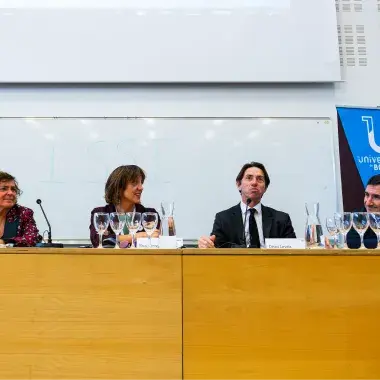

05/ Transparency
Transparency
A quality management system involves following good practices with regards to the transparency of the organisation towards society.
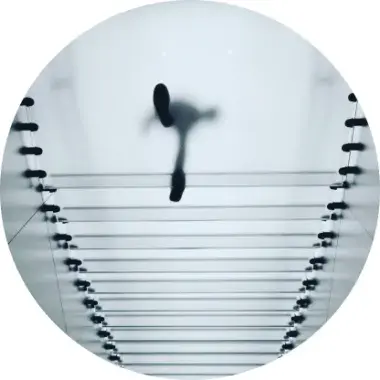
The members of the Board of Trustees are responsible for formulating the annual financial statements in such a way that they express a true and fair view of the assets, financial situation and results of Euskampus Fundazioa, in accordance with the regulatory framework for financial reporting that applies to the institution.
Full information on our audit process, balance sheets and income statements are made available to the user below.

06/ Profile of the contractor





